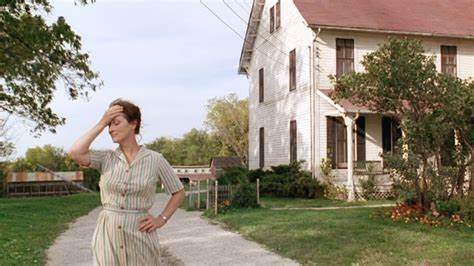This review initially ran out of the Sundance Film Festival in February 2021. CODA will be released Aug. 13 in theaters and on Apple TV+.
The Sundance Film Festival is still often a place for small unpolished gems. But CODA, which premiered there on Thursday night, is the kind of movie that seems to arrive fully formed — and has already been rewarded accordingly with by far the highest purchase price in Sundance history, $25 million by Apple TV+. (Andy Samberg’s existential rom-com Palm Springs set the record last year, with $17.5 million.)
Those staggering numbers seem at odds at first with the film’s modest outlines — a classic coming-of-age tale, populated mostly by lesser-known actors and set in a small Massachusetts town. The charm in writer-director Sian Heder’s breakout second feature is easy to find though, and much of it stems from the sweet specificity of her premise; British actress Emilia Jones (Netflix’s Locke & Key) stars as Ruby Rossi, the only hearing person in a deaf family.

The Rossis are a rowdy crew: Patriarch Frank (Troy Kotsur) and his grown son Leo (Daniel Durant), both tattooed brawlers, descend from a long line of local fishermen; they drink and smoke and make fart jokes, and when Frank’s not on the boat, he’s usually finding a way to have spectacularly noisy sex with his beloved wife, Jackie (Oscar winner Marlee Matlin), a midlife sexpot in skinny jeans. Ruby rises every day at 3 a.m. to work alongside them, hauling in the daily catch before the sun is fully up. Then she pulls off her waders and heads to high school, where the mean girls make snide cracks about smelling fish when they pass her in the halls, and even her best friend Gertie (Amy Forsyth) can’t understand why she wants to join something as deeply uncool as choir.
But music, which her family has no way of knowing — they can’t hear her singing along to old Motown songs and Nina Simone while she works, or belting them out in her bedroom — is the thing that brings her the most joy.It also terrifies her though, so it takes a burgeoning crush on a classmate (Sing Street’s Ferdia Walsh-Peelo) and the careful attentions of a teacher, Mr. Villalobos (Eugenio Derbez), to nudge her out of her skittish shell and closer toward the public performances she fears so much.
Heder, a writer and producer best known for her work on shows like Orange Is the New Black and Little America, never leaves any real doubt that Ruby will find her way when it comes to both first kisses and longer-range career plans. And CODA does often have the feel and scale less of big-screen moviemaking than of the television background she comes from, albeit expertly done (and with more than a few premium-cable profanities). But a handful of sitcom-ish moments seem like small glitches in a script that works so winningly to bring the often unseen (or just terminally under-explored) world of deafness to such joyful, ordinary life.
Jones — who trained intensively in voice work and American Sign Language for the role — has the gift of coming off like a genuine teenager, and more particularly a girl torn between her unique obligations to the people she loves and the bigger dreams she holds for herself. Matlin is great too, both tough and tenderhearted, though Durant and Kotsur deserve to be singled out for largely wordless performances that still convey so much in every scene: Anger, vulnerability, outrageous humor. Together, they somehow manage to make CODA feel like both the best and most familiar kind of family film, and one you’ve never quite seen before.



